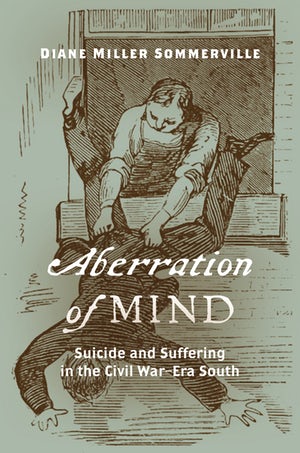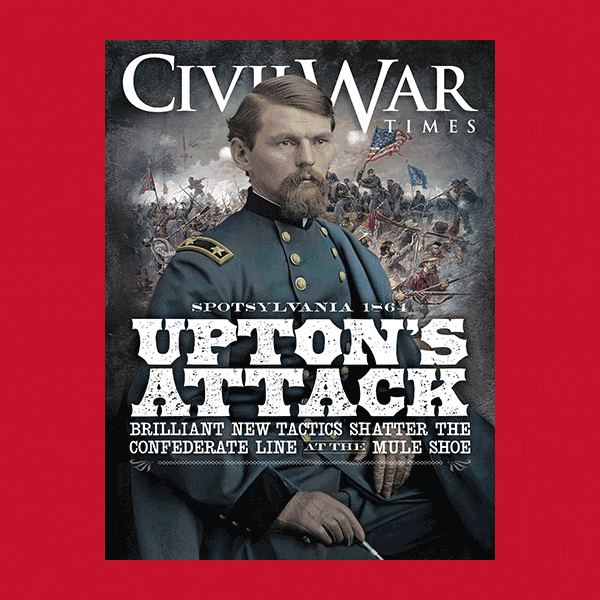Diane Miller Sommerville, a history professor at Binghamton University in New York, spent 14 years on her latest book, An Aberration of Mind: Suicide and Suffering in the Civil War Era South. She focused on unearthing material tucked away in diaries, letters, and asylum records, rather than relying on the records of the military or political elites. While the evidence is too sparse to produce a quantitative snapshot of the incidence of suicide, she has assembled a wealth of details that provide context to suicides among not only soldiers and veterans, but civilians and freedpeople.
Why study suicide?
About 15 years ago, I was listening to a television show about depression and suicide, and I thought about how difficult it must have been in historical times when people had to deal with depression, considering that even today you have a high suicide rate among certain sectors, among the young, among veterans. What would it have been like in the 19th century, given the stresses of the Civil War and its aftermath?
What was the prewar view of suicide?
In the antebellum period, it was regarded by most people—and especially denominational churches—as a mortal sin, and culturally as an act of cowardice. In Protestant doctrine, all sins are forgivable—except if you kill yourself, then you don’t have the ability to ask for forgiveness. That’s why it is a mortal sin, and that contributes to the stigma. There is ample evidence in letters and diaries that it was regarded as a sign of moral weakness. During the Civil War, the circumstances were so despairing for so many that suicide becomes more common. And because suffering was so pervasive throughout the South during the Civil War, most Southerners were able to sympathize with those who did commit suicide. That is during and after the war. By the end of the 19th century, suicide among whites was raised as a kind of marker of nationalism and white supremacy.

An example?
Edmund Ruffin died in 1865. He was a Fire-eater and much of what has been written about the suicide targets his desire not to live under Yankees. In fact, his suicide note was extensive—about 12 pages—and lists a half dozen reasons for why he committed suicide, including bad health and losses in the war. What’s interesting for me is that contemporaneously there was no mention of his dying with a Confederate flag wrapped around him, which is the way it is usually characterized, even in the most respectable biographies of him. I was able to trace the first reference to it to the 1880s, which of course coincides with the development of the Lost Cause. Suicide becomes something that is patriotic, sacrificial, something admirable. Another example is in the 1905 novel The Clansman [the inspiration for the 1913 movie Birth of a Nation], when the young woman is raped by a number of black men, and she ends up committing suicide with her mother by jumping off a cliff. Again this was heroic—seen as admirable because it was better to be dead than live with the stain of being raped by a black man. That is the trajectory I identified in the course of the Civil War in the attitudes toward suicide.
You describe something quite different regarding blacks and suicide.
In conversation with my former adviser, the late Jan Lewis, she encouraged me to consider African Americans. It was a challenge: the circumstances were so different, and there are few recordings and written records among suicides of the enslaved community. In the antebellum period, there was this notion that they had never heard of an enslaved person who was melancholy or committed suicide, but in fact there were, obviously, and there are even formerly enslaved persons in institutions after the war. So we know that they did suffer from mental illness and sometimes killed themselves. The question for a historian: Why? They were free and have opportunities to live their lives as they wished to. Why would they ever succumb to depression and then kill themselves?
Talk about the suicides that occurred during military service.
This is a story not just about Confederates. We know that Northern men killed themselves as well. The task for me was to figure out how to understand the meaning of these suicides in the context of the South. This is not entirely about Southern whiteness; this is the 19th-century United States. There were gender conventions, and we had slave-owning, which was a big part of masculine identity—mastery. We also have the honor culture, which was much stronger in the South. This was a very important part of understanding why men would kill themselves, especially those who were in camp. One of the most surprising things was the number of soldiers who killed themselves before they saw battle.
What was going on?

I think that this particular group of men made clear that they were concerned with their reputations and with failure, and failure was not acceptable among men in the 19th century, especially middle class and elite men. Success was how they defined themselves. They were unsure about how they would react, and a lot of them decided that killing themselves on their terms was preferable to going to battle and the possibility that they would not be able to summon up the courage to do what they were expected to do. There’s also something here about control. There is a large part of being a soldier that you can’t control, and Southern white men were not used to having their mobility restricted. This is a complicated subject; post-traumatic stress disorder and war-related trauma occur across peoples and time periods.
What would you like to add?
I would consider my book an important intervention in veterans’ studies. It doesn’t focus only on veterans, but it is very important to get a snapshot of the entire population. By studying families as they are reunited after the war, we see how very difficult it was when soldiers came home not only with physical maladies but psychic ailments as well. How difficult it was on families to normalize their relations. Today we are much more aware of how hard it is for men and women in the armed services to come back from their duty abroad and then try to acclimate to civilian and family life. I think that if we were to make a connection to contemporary society, it is important to understand the larger consequences of military service and war and the full cost of what happened in communities and families after the war.
One of the questions that I am curious about is to what extent did all of this suffering contribute to all the violence in the postwar period? Was it a kind of transference of all this suffering and anger to outward violence in others? I don’t know that one can establish the motivations, but it is worth thinking about.







